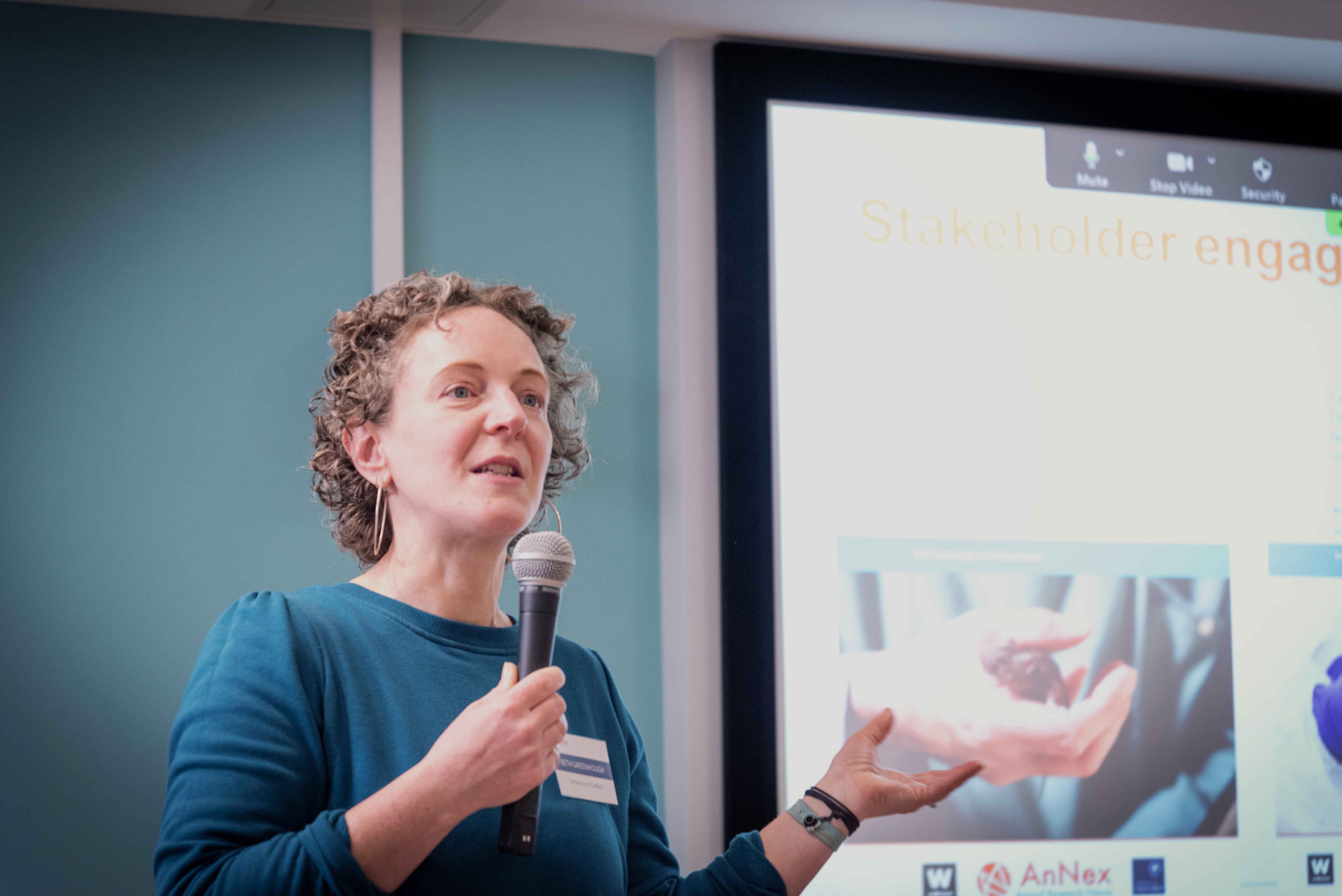The Animal Research Nexus Programme closing workshop
The Animal Research Nexus Programme closing workshop
The Animal Research Nexus Programme ran its closing workshop at the end of March (2023) at the Wellcome Trust in London. This was an opportunity for us to meet with colleagues, collaborators, and critical friends to review our research, reflect on the outcomes, and explore connections with other people and projects working in similar areas.
We planned the event to be open and welcoming to different disciplinary perspectives, diverse positions on animal research, and to those participating online and those in the room. Of course, opening up to incorporate all these dimensions in practice is more complex than you anticipate. In this programme, our guiding principle has been to bring the diverse voices of those affected by animal research into conversation, to explore connections and differences, reflecting critically on how these dialogues are structured but always with as much hospitality as possible. Over the two days we learnt more about what it means to create the conditions in which we can all learn from different disciplines. We explored the politics of polarisation around animal research while trying not to reify new divisions between institutional and activist positions. And we grappled with the inequalities that inevitably flow from trying to make an event accessible online and in person. Despite these challenges, we felt the event was a success in that it was enjoyable to run, warmly received, and enabled enthusiastic participation. For this we thank the energy and open mindedness of all who attended, and the generosity of the Wellcome Trust.

The opening day focused on the work on the Animal Research Programme, which ran from 2017 to 2023. In the opening session (pictured above), Beth Greenhough's presentation introduced the collaborative practices that have underpinned our work together. Rob Kirk and Dmitriy Myelnikov talked about the making of ASPA - The Animals in Scientific Procedures Act (1986) - the legislation governing animal research in the UK. Beth, Reuben Message and Alexandra Palmer explored what it means to practice care-ful animal research under these regulations when accommodating animals, like fish, or working with citizens in field spaces that were outside the imagined focus of the initial act. The second set of presentations further unpacked the ways that ASPA is enacted. Emma Roe and Sara Peres followed animals outside of the laboratory to reflect on how supply chains for animal research manage issues around animal surplus or waste. Pru Hobson West, Alistair Anderson, and Renelle McGlacken focused on the how the Act shapes the professional role of veterinarians and constructs particular ways of listening to the public, reflecting on the implications for how professionals and the public imagine and encounter each other. Finally, Gail Davies and Rich Gorman looked at how ethical principles at the centre of ASPA now circulate more widely: in contexts where patients discuss their harm-benefit of animal research and where replacements are considered to unregulated procedures in endotoxin testing. You can find our slides by following the links above.
We were privileged to be joined by many collaborators and interlocutors who we have learned with and from over the process of doing this research. We invited some of these to start a conversation around the connections and disconnections facilitated through our work. We want to thank (pictured from left to right above) Carrie Friese, Eva Haifa Giraud, Larry Carbone, Penny Hawkins, and chair Kate Millar, for opening this discussion with such engaging and honest contributions as animal welfare advocates, veterinarians, critical animal studies scholars, and sociologists. We have included many of these reflections as commentaries in our forthcoming book on Researching Animal Research (2024, Manchester University Press). In doing this we have sought to replicate in print some of the dialogic methods that characterise our work and challenge ourselves and others to consider how nexus thinking constructs what is inside or outside of any conversation.
The concluding plenary of day one and the whole of day two opened up further sites in which animal research comes into conversation with the humanities and social sciences. Plenaries from Tone Druglitrø (pictured above) and Ann Kelly highlighted the importance of the immune system as a site where material and biomedical connections are made between species, through regulatory processes of immune-bridging trials (Kelly) or the complex choreographies of cod immunology (Druglitrø). A session on creative practices foregrounded the role of imagination and emotion in facilitating conversations around animal research within institutions, education, within the arts, and with the public. Our thanks to Jordi Lopez-Tremoleda, Sarah Bailey, The Lab Collective, Maisie Tomlinson and Louise Mackenzie for bringing such rich material to the event that we hope will be written up elsewhere shortly. In the meantime, you can explore some of the creative work emerging from the Animal Research Nexus Programme here.
Posters and presentations from emerging voices in the social study of animal research provided a showcase for innovative and diverse approaches to the social study of animal research and advocacy from Julia Baines, Julia Bastian, Charlotte C Burn, Trinity Camacho, Kate Goldie, Jo Hockenhull, Kimberley Jane, Svea Jörgensen, Hibba Mazhary, Renelle McGlacken, Ankita Pandey, Tom Quick, Kathleen Salter, Hanne Tresselt, and Emily R. Trunnell. The final session was a panel discussion on future challenges to policy and practice around in animal research, mapped out by Elliot Lilley, Richard Milne, Heather Browning, Anna Olsson, and Helena Röcklinsberg. Any of these potential transitions could easily be the inspiration for another 6 year’s collaborative research! In closing this programme, we ended the event with some heartfelt thanks delivered by Pru Hobson West to everyone who had made the day and the research programme possible.